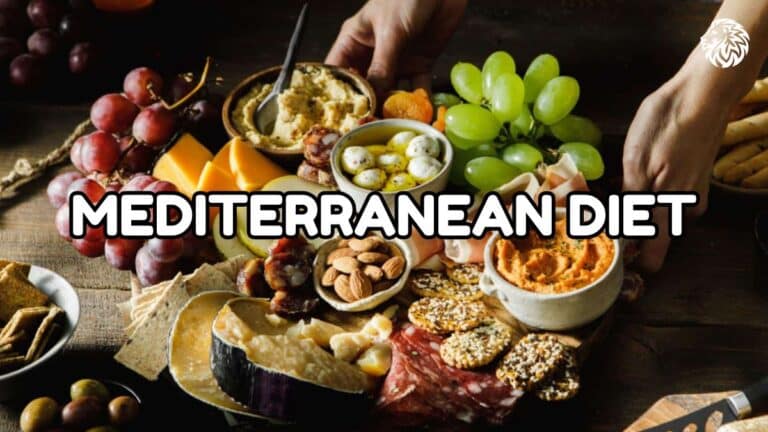The Mediterranean Diet, a culinary sensation for years, is lauded for its emphasis on wholesome, unprocessed foods and balanced nutrition. Little wonder that it consistently tops charts for promoting holistic well-being, shedding pounds, and bolstering cardiovascular health. But what exactly are the top 10 foods you should be incorporating into your Mediterranean Diet? We’re here to answer that question and take you on a delicious journey through the heart of Mediterranean cuisine.
What is the Mediterranean Diet?
The Mediterranean Diet, a buzzword in recent times, revolves around the age-old culinary traditions of nations fringing the Mediterranean Sea. Boasting an abundance of minimally processed, plant-based whole foods, this diet champions a nutritious and tasty lifestyle. Let’s dive into the core elements and myriad advantages of the Mediterranean Diet.
A Bountiful Harvest: Embracing Nature’s Gifts
Fresh, in-season fruits and vegetables, which offer vital vitamins, minerals, and antioxidants, are at the core of the Mediterranean Diet. This dietary approach also emphasizes whole grains, such as farro, bulgur, and whole wheat pasta, which offer sustained energy and vital nutrients. Legumes, including lentils, chickpeas, and various beans, are a key component, providing plant-based protein and fiber.
Treasures of the Sea: Reaping the Rewards of Oceanic Delights
Succulent fish and seafood, particularly omega-3 dense varieties like salmon and mackerel, are staples of the Mediterranean Diet. Indulging in these underwater delights at least twice a week can work wonders for your health.
Liquid Gold: Drizzling on the Goodness of Olive Oil
Extra virgin olive oil, affectionately known as “liquid gold,” plays a central role in the Mediterranean Diet. Rich in heart-healthy monounsaturated fats and polyphenols, olive oil has been linked to reduced inflammation and improved heart health. Use it liberally in dressings, for cooking, or as a simple dip for fresh bread.
A Sprinkle of Flavor: Accentuating Dishes with Herbs and Spices
The Mediterranean Diet relies on herbs and spices to add depth and flavor to dishes, reducing the need for unhealthy additives like excessive salt or sugar. Incorporate aromatic herbs like basil, rosemary, and oregano, and spices such as paprika, cumin, and cinnamon to elevate your culinary creations.
A Taste of Moderation: Enjoying Dairy, Poultry, and Red Wine
Yogurt, cheese, and milk are examples of dairy products that are allowed in the Mediterranean Diet but should only be consumed in moderation. Additionally included are poultry and eggs, which offer lean protein choices. And let’s not forget the occasional glass of red wine, which is rich in polyphenols and antioxidants, and can be enjoyed in moderation as part of the Mediterranean lifestyle.
The Benefits of Embracing the Mediterranean Diet
By adopting the Mediterranean Diet, not only will your palate savor an array of delectable foods, but your health will also flourish. Touted for its heart-healthy, weight loss, and longevity-promoting properties, this diet is an all-around winner for those seeking a healthier lifestyle.
In a nutshell, the Mediterranean Diet is a balanced, scrumptious approach to nutrition, drawing from the Mediterranean’s rich culinary legacy. Embrace its tenets, and embark on a lifelong journey to better health and tantalizing culinary discoveries.
The Origins of the Mediterranean Diet
The Mediterranean Diet, with its myriad health benefits and flavorful dishes, has long been celebrated as an ideal eating pattern. But where did this diet originate, and how has it evolved over time? Delve with us into the fascinating history of the Mediterranean Diet, as we explore its roots and uncover the factors that have shaped it into the celebrated dietary approach it is today.
A Culinary Tapestry Woven Across Millennia
The Mediterranean Diet’s origins can be traced back thousands of years, to the diverse cultures and civilizations that flourished around the Mediterranean Sea. Ancient Greeks, Romans, Egyptians, and Phoenicians, among others, all contributed to the foundation of this diet, each bringing their unique culinary influences and local ingredients.
Agricultural Abundance: The Basis for a Healthy Diet
The Mediterranean region’s fertile lands and temperate climate allowed for the cultivation of a wide variety of fruits, vegetables, legumes, and grains. Olive trees thrived in the region, leading to the production of olive oil, a key component of the Mediterranean Diet. The proximity to the sea ensured a steady supply of fresh fish and seafood, while the region’s grasslands supported livestock that provided dairy products and, to a lesser extent, meat.
Cultural Exchange: Spreading Culinary Wisdom
As trade routes expanded and cultural exchanges intensified, the Mediterranean Diet continued to evolve. The Arab and Moorish invasions of Southern Europe introduced new ingredients and culinary techniques, such as the use of spices like saffron, cinnamon, and nutmeg. The Crusaders, returning from their journeys, brought back exotic fruits, which further enriched the Mediterranean culinary landscape.
The Renaissance: A Turning Point in Gastronomy
During the Renaissance, a renewed interest in gastronomy elevated the Mediterranean Diet to new heights. Culinary practices were refined, and the art of cooking was celebrated. This period saw the development of many iconic Mediterranean dishes and a greater appreciation for the region’s abundant ingredients.
Scientific Discovery: Unveiling the Diet’s Health Benefits
The modern-day recognition of the Mediterranean Diet as a health-promoting eating pattern began in the mid-20th century, with the groundbreaking work of American scientist Ancel Keys. His Seven Countries Study revealed a strong correlation between the Mediterranean Diet and lower rates of heart disease, paving the way for further research and recognition of the diet’s numerous health benefits.
Today’s Mediterranean Diet: A Timeless Approach to Wellness
In our contemporary world, the Mediterranean Diet remains a gold standard for healthful eating. By drawing on its rich history and diverse culinary influences, it offers a balanced, flavorful, and sustainable approach to nutrition. We can anticipate a future of scrumptious, healthy meals that satiate both the body and the soul as long as we continue to learn from the past.
Top 10 Mediterranean Diet Foods
1. Extra Virgin Olive Oil
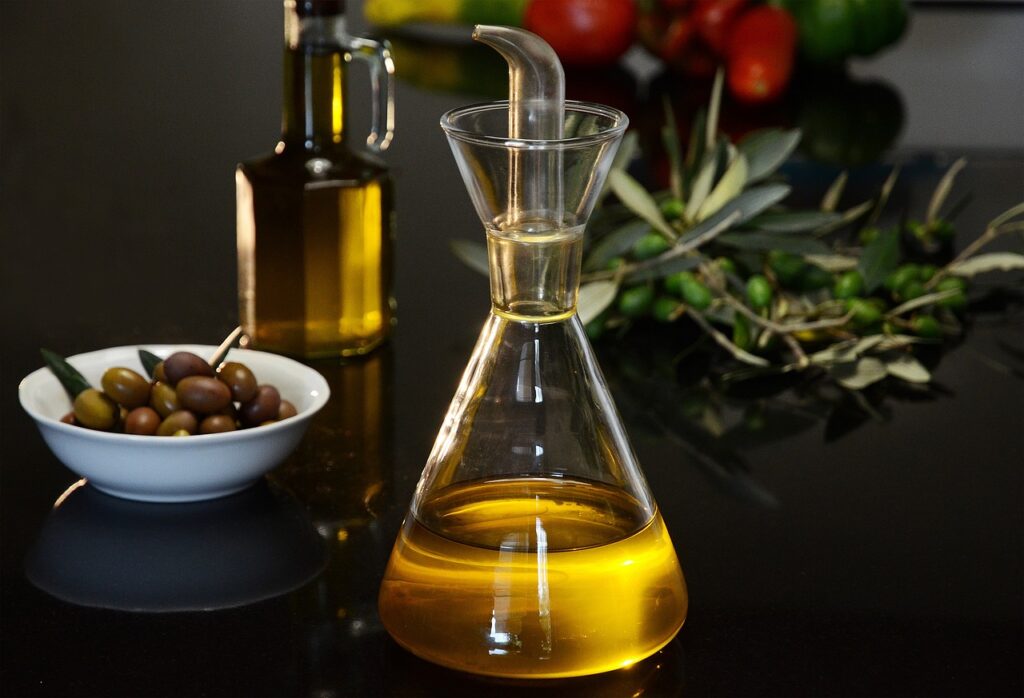
Olive oil, often referred to as “liquid gold,” is the cornerstone of the Mediterranean Diet. It is abundant in polyphenols, which have been connected to lowered inflammation and enhanced cardiovascular health, and heart-healthy monounsaturated fats. Use extra virgin olive oil in dressings, for cooking, or even as a simple dip for fresh bread.
2. Fish and Seafood
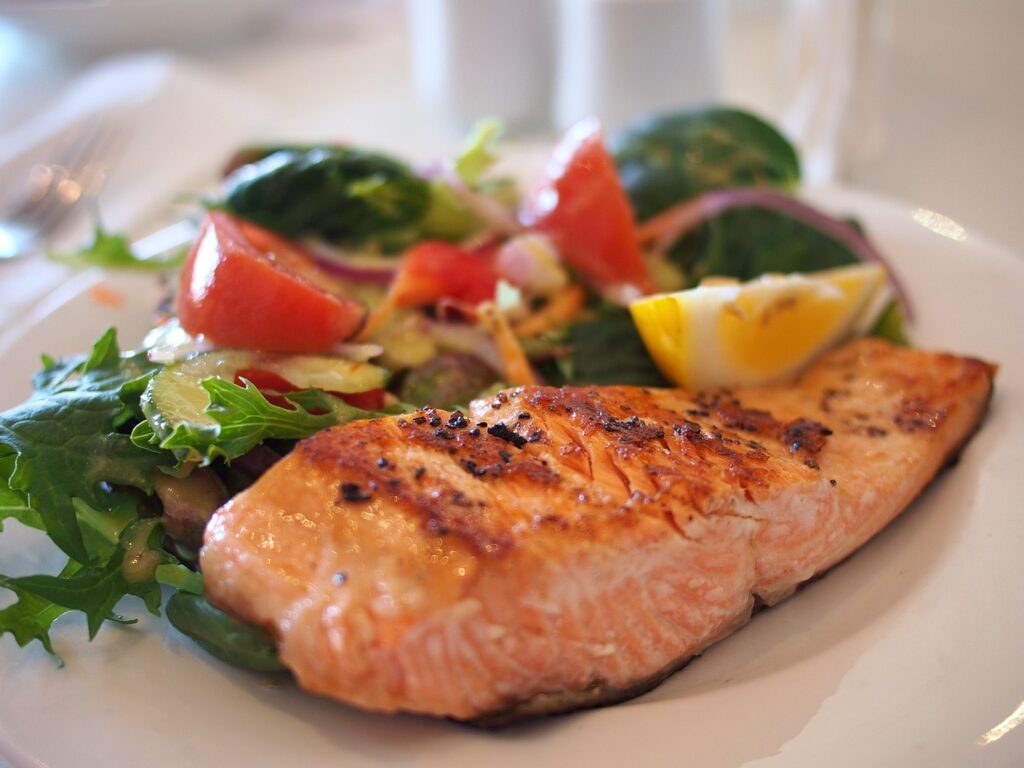
In the Mediterranean diet, fish and seafood, especially fatty fish like salmon, mackerel, and sardines, take center stage. These aquatic delights brim with omega-3 fatty acids, renowned for combating inflammation and supporting heart health.
3. Fresh Fruits and Vegetables

A Mediterranean Diet is incomplete without an abundance of fresh fruits and vegetables. They are packed with vitamins, minerals, and antioxidants that support overall health. Enjoy a variety of colorful produce, such as leafy greens, tomatoes, bell peppers, eggplant, and zucchini. Fruits like berries, oranges, and grapes make for delicious snacks or desserts.
4. Legumes
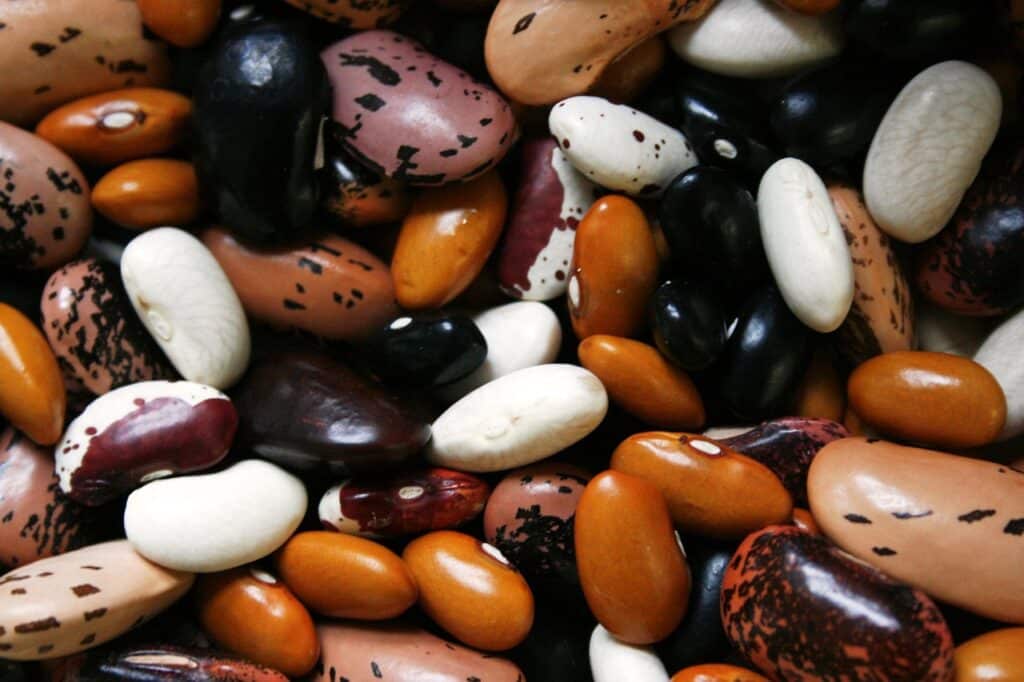
Legumes, including beans, lentils, and chickpeas, are essential in a Mediterranean Diet. They provide a fantastic source of plant-based protein, fiber, and essential nutrients like iron and magnesium. Incorporate them into your meals in the form of salads, soups, or even as a main dish like falafel or bean-based stews.
5. Whole Grains
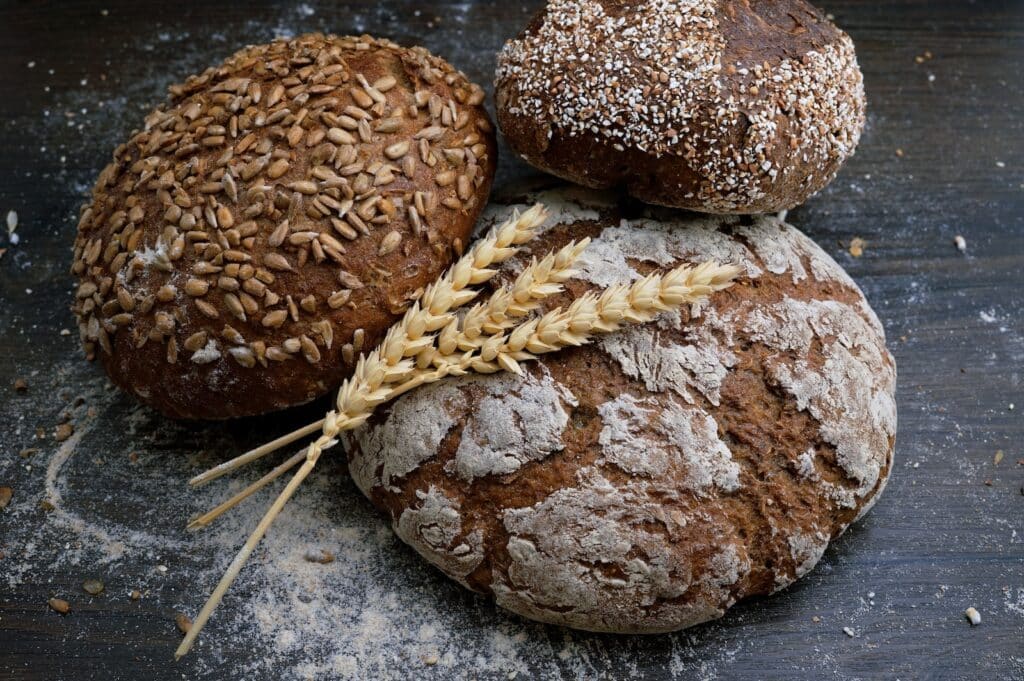
Whole grains such as barley, bulgur, farro, and whole wheat pasta play a vital role in the Mediterranean Diet. They provide essential nutrients, fiber, and sustained energy throughout the day. Swap out refined grains for whole grain options to reap the benefits of this nutritious food group.
6. Nuts and Seeds
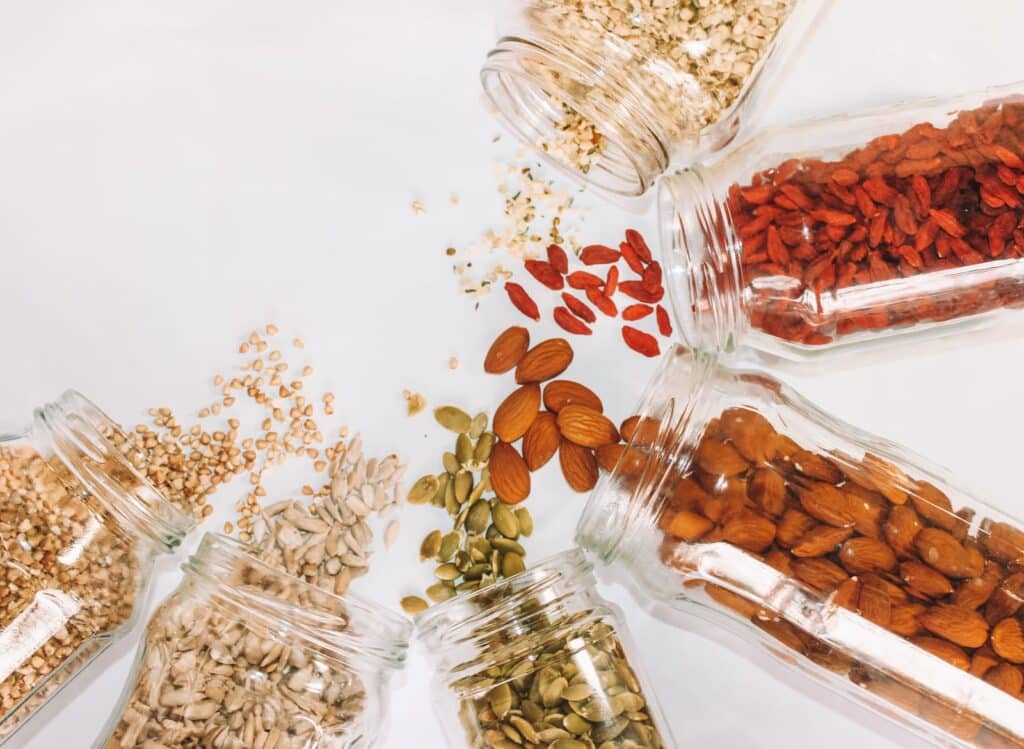
This diet also extols the virtues of nuts and seeds, such as almonds, walnuts, and sunflower seeds. Packed with protein, fiber, and healthy fats, they are perfect additions to your meals or as nutritious snacks. But remember, moderation is vital due to their calorie density.
7. Dairy Products
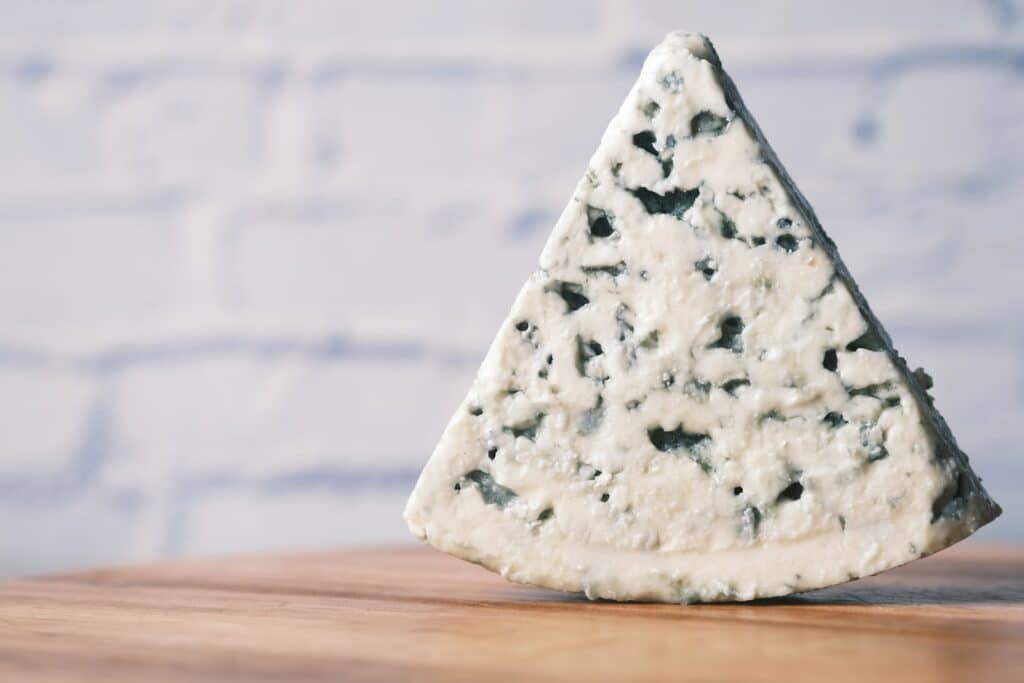
Dairy products such as yogurt, cheese, and milk play a role in the Mediterranean Diet, but in moderation. Opt for low-fat or fat-free versions when possible, and savor traditional Mediterranean cheeses like feta and halloumi. Greek yogurt, in particular, is an excellent source of protein and probiotics.
8. Herbs and Spices

Herbs and spices add depth and flavor to Mediterranean dishes, reducing the need for salt and other unhealthy additives. Basil, oregano, rosemary, thyme, and parsley are popular choices, along with spices like cinnamon, cumin, and paprika. Experiment with these aromatic ingredients to elevate your meals and enjoy the health benefits they provide.
9. Poultry and Eggs

While the Mediterranean Diet emphasizes plant-based proteins, poultry and eggs are also included in moderation. Choose lean cuts of chicken or turkey, and opt for free-range, organic eggs whenever possible. These sources of protein can be enjoyed in various dishes, from salads and sandwiches to heartier main courses.
10. Red Wine

Red wine, consumed responsibly and in social settings, is integral to the Mediterranean lifestyle. With its abundance of polyphenols and antioxidants, a moderate intake of red wine may protect the heart. As always, consult your healthcare provider before incorporating alcohol into your diet.
Conclusion
Embarking on a Mediterranean Diet journey is not only a delicious adventure but also a powerful step towards better health and longevity. By incorporating these top 10 foods into your daily meals, you’ll enjoy a diverse and flavorful diet that supports overall wellness. So, why not start today? Your taste buds and your body will thank you.
Frequently Asked Questions
What is the Mediterranean Diet?
The Mediterranean Diet is a dietary pattern inspired by the traditional eating habits of people living in countries bordering the Mediterranean Sea. It emphasizes fruits, vegetables, whole grains, legumes, fish, and healthy fats while limiting red meat, processed foods, and added sugars.
Can the Mediterranean Diet help with weight loss?
Absolutely! The Mediterranean Diet supports weight loss by emphasizing balanced eating, portion control, and whole foods. Its focus on plant-based foods, lean proteins, and healthy fats keeps you satiated while consuming fewer calories.
Is the Mediterranean Diet suitable for vegetarians and vegans?
Indeed, this diet is easily adaptable for vegetarians and vegans, as it already champions plant-based foods. Substitute fish and poultry with vegetarian and vegan-friendly protein sources like legumes, nuts, and seeds.
How does the Mediterranean Diet benefit heart health?
The Mediterranean Diet has proven to bolster heart health by reducing inflammation, lowering cholesterol levels, and fostering healthy blood pressure. Its focus on heart-healthy fats from olive oil and fish, as well as antioxidant-laden fruits and vegetables, contributes to these benefits.
How can I start incorporating the Mediterranean Diet into my daily life?
Begin by incorporating more fruits, vegetables, whole grains, legumes, and healthy fats into your meals. Opt for lean proteins like fish and poultry, and enjoy moderate amounts of dairy. Replace refined grains with whole grain options, and experiment with herbs and spices to add flavor without relying on unhealthy additives.


